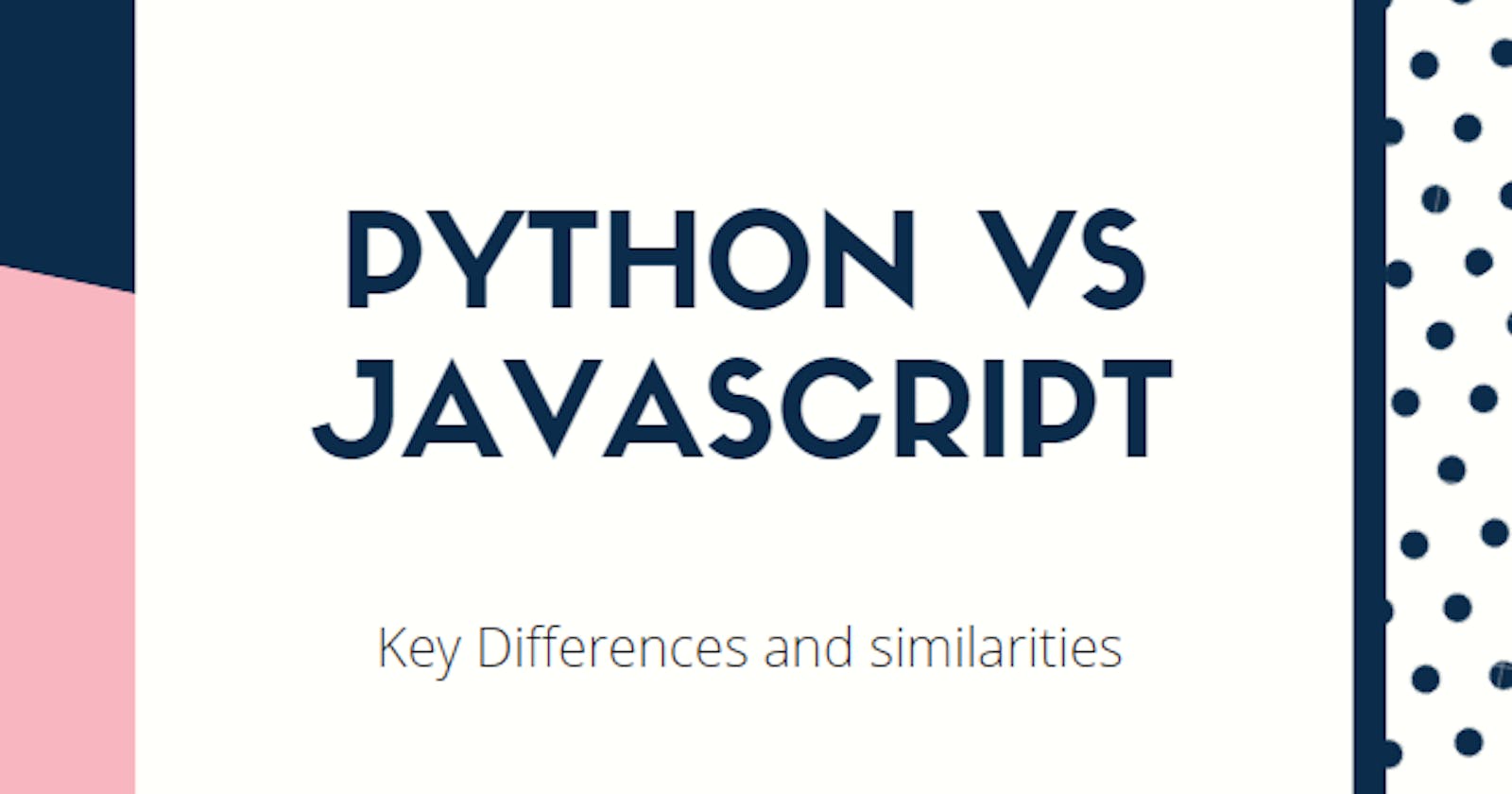What is Python?
Python is an interpreted, object-oriented, high-level programming language with dynamic semantics that can be applied to many different problems. Python lets you work quickly and integrate your systems more effectively. It's flexible and there is a powerful ecosystem of packages available. This language can be easy to pick up whether you're a first-time programmer or you're experienced with other languages. (It's a fantastic beginner language!)
Benefits of using Python
The benefits of Python are widespread and far-reaching. This is one reason Python is one of the leading languages.
- Backend and Frontend development
- Cross-platform language
- Open source
- Strong community base
- SO MANY tools
- Simple, consistent syntax
What is JavaScript?
We kind of explored what Python is. So what's JavaScript? JavaScript is a scripting language that helps us create interactive web pages. I like to think of it as the 'brains' of an application when developing a JavaScript program. Html is the skeleton, the bones. CSS is the skin and clothing, what makes it look nice and pretty, and JavaScript is the brains-the functionality behind it all.
JavaScript follows the rules of client-side programming, so it runs in the user's browser without the need for any resources from the server. We can also use JavaScript with other cool technologies, like API's, XML, Node.js, and more.
Python Vs JavaScript
Both are two of the most popular coding languages used-and for good reason. If you are familiar with JavaScript and then learn Python, or vice versa, you'll notice so many similarities. They're both high level coding languages, which makes learning them fairly easy. They both support OOP (object-oriented programming). There are some differences though, besides what they're primarily used for.
Key Differences
REPL
With JavaScript, there is no built-in REPL, as most of the time we run in a browser. We can use a REPL by installing node.js. Python, however, has a built-in REPL that we get with the installation of Python. This interpreter is an amazing tool.
Classes and Inheritance
If you've worked with JavaScript, you've heard of 'object-based'. Python's object-based subset is basically the same to JavaScript. Everything in Python can be considered as an object. Like JavaScript, Python supports a style that uses simple functions and variables without having to use class definitions. The difference? For JavaScript, that's all there is. Python supports writing larger applications with better code reuse through a true OOP style. In Python, classes and inheritance play a super important role.
Modules
Python calls itself as a 'batteries included' language as it comes with a very wide range of modules, whereas JavaScript comes with fewer modules. Python's standard library is huge in comparison.
Data Types and Objects
JavaScript has no concept of mutable and immutable data types but Python has both! JavaScript objects have properties that can be composed of underlying attributes which allow us to define a property, and in Python, we can use getter and setter functions to define an attribute.
Which is better?
These are just some of the differences between the two, the ones that stick out the most to me. But really, the major differences between the two relate to how people use them. Python has so many applications, including data science and the back end portion of web applications. On the other hand, JavaScript is used primarily for the front end portion and is rarely used outside a browser. So that brings us to the question, Which is better?
The answer? Neither. Not one is better than the other, and this goes for all languages. They're both super useful and serve their own unique purpose. They both work great in their own field, but also can work together to create something amazing.
Why I love Python
Python is so powerful and has such an elegant syntax, making programs easier to read and write. There is a huge library of handy tools that are so helpful. It's easy to debug, compared to other languages, therefor the source code is relatively easy to maintain. The built in interactive shell helps test things before it's actual implementation. But most of all, Python helps make complex programming simpler. In so many ways.
Anyways, I hope you found this post somewhat helpful and as always, thanks for the taking the time to check it out!
Until next time, Happy Coding!

